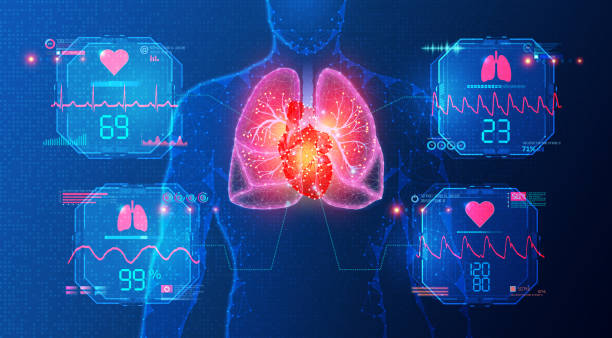Personalized medicine represents a paradigm shift in healthcare, moving away from the traditional one-size-fits-all approach to treatments and therapies tailored to individual characteristics. This article explores the advances in personalized medicine, highlighting its impact on patient care, medical research, and the future of healthcare.

1. Understanding Personalized Medicine
Personalized medicine, also known as precision medicine, utilizes patient-specific information to customize medical care. This approach considers genetic, environmental, and lifestyle factors to predict disease susceptibility, determine optimal treatment strategies, and enhance patient outcomes. By integrating data from genomics, proteomics, and other biomarkers, healthcare providers can deliver targeted therapies that are more effective and less likely to cause adverse effects.
2. Advancements in Genomic Sequencing
Genomic sequencing plays a pivotal role in personalized medicine by decoding an individual’s genetic makeup. The Human Genome Project, completed in 2003, paved the way for rapid advancements in DNA sequencing technologies, making it feasible to analyze an individual’s entire genome efficiently and cost-effectively. Today, next-generation sequencing techniques enable healthcare providers to identify genetic variations associated with diseases, predict treatment responses, and personalize preventive care strategies based on genetic predispositions.
3. Targeted Therapies and Precision Oncology
In oncology, personalized medicine has revolutionized cancer treatment through targeted therapies and precision oncology. By analyzing tumor-specific genetic mutations and biomarkers, oncologists can prescribe medications that selectively target cancer cells while sparing healthy tissues. This approach improves treatment efficacy, reduces side effects, and enhances survival rates for cancer patients. Examples include therapies targeting HER2-positive breast cancer and BRAF-mutant melanoma.
4. Pharmacogenomics and Drug Response
Pharmacogenomics investigates how an individual’s genetic makeup influences their response to medications. By analyzing genetic variations in drug metabolism enzymes and drug targets, healthcare providers can predict how patients will respond to specific medications. This knowledge enables personalized prescribing practices, optimizing drug selection, dosage adjustments, and minimizing the risk of adverse drug reactions. Pharmacogenomic testing is increasingly integrated into clinical practice to enhance medication safety and efficacy.
5. Diagnostic Biomarkers and Disease Prediction
Personalized medicine utilizes diagnostic biomarkers to detect diseases early, monitor disease progression, and predict treatment outcomes. Biomarker testing, such as blood tests measuring specific proteins or genetic markers, provides valuable insights into individual health status and disease risk. For instance, biomarkers for cardiovascular diseases, diabetes, and Alzheimer’s disease enable early intervention strategies and personalized preventive care plans tailored to individual health profiles.

6. Digital Health Technologies and Data Integration
Advancements in digital health technologies, including wearable devices, mobile health apps, and telehealth platforms, facilitate real-time data collection and integration into personalized medicine approaches. These technologies monitor patients’ health metrics continuously, enabling remote patient monitoring, personalized treatment adjustments, and early detection of health deterioration. Integrated data analytics enhance healthcare delivery by providing actionable insights for healthcare providers and empowering patients to actively manage their health.
7. Ethical Considerations and Regulatory Frameworks
The adoption of personalized medicine raises ethical considerations related to patient privacy, consent for genetic testing, and equitable access to innovative therapies. Regulatory frameworks ensure that personalized medicine practices adhere to ethical standards, safeguard patient confidentiality, and promote informed decision-making. Policymakers collaborate with healthcare professionals, researchers, and patient advocacy groups to establish guidelines that balance technological advancements with ethical principles and patient rights.
8. Impact on Healthcare Economics
While personalized medicine holds promise for improving patient outcomes and reducing healthcare costs associated with ineffective treatments and hospitalizations, its implementation requires substantial investments in infrastructure, technology, and workforce training. Health economic studies evaluate the cost-effectiveness of personalized medicine interventions, considering long-term benefits in terms of improved health outcomes and quality-adjusted life years.
9. Future Directions and Innovation
The future of personalized medicine is characterized by ongoing innovation and interdisciplinary collaboration. Emerging technologies, such as artificial intelligence (AI) and machine learning, accelerate data analysis, identify novel biomarkers, and predict disease trajectories with greater precision. Integrating multi-omics data (genomics, proteomics, metabolomics) enhances understanding of disease mechanisms and facilitates personalized therapeutic approaches across diverse patient populations.
10. Patient Empowerment and Healthcare Transformation
Personalized medicine empowers patients by offering individualized treatment options based on their unique genetic and molecular profiles. Patients become active participants in their healthcare journey, making informed decisions alongside healthcare providers. As personalized medicine continues to evolve, it has the potential to transform healthcare delivery models, shift focus towards preventive care, and improve health outcomes on a global scale.

Conclusion
In conclusion, advances in personalized medicine represent a transformative approach to healthcare, revolutionizing how diseases are diagnosed, treated, and prevented. By leveraging genomic data, diagnostic biomarkers, and digital health technologies, personalized medicine enhances precision in medical decision-making, improves patient outcomes, and fosters a more personalized and patient-centered healthcare system. Embracing these innovations paves the way for a future where healthcare is tailored to individual needs, offering hope for better health and well-being worldwide.

